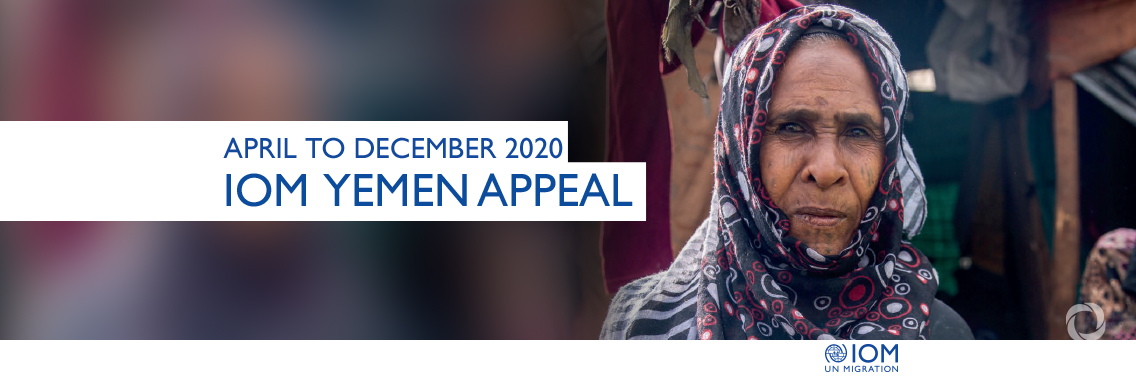The COVID-19 pandemic has worsened the already dire situation in Yemen for vulnerable communities like internally displaced people and migrants. The International Organization for Migration (IOM) has launched an appeal for USD 155 million to support over 5.3 million people by the end of this year.
Conflict, mass displacement, severe economic decline, food insecurity, and the near-collapse of public services continue to take an enormous toll on people in Yemen, exacerbating existing vulnerabilities and significantly impacting their health and well-being. Over 80 percent of Yemen’s population are estimated to be in need of humanitarian assistance.
“The situation in Yemen is at breaking point,” said António Vitorino, IOM Director-General.
“As the world comes to grips with the pandemic, countries in crisis need more support than ever. COVID-19 is a global problem with only a global solution: while one country struggles through an outbreak, it can put the health of other populations in the region and globally at risk. Yemen cannot face this new crisis alone.”
The World Health Organization (WHO) predicts that more than half of Yemen’s population will contract COVID-19. As a result of limited testing capacity, laboratory-confirmed cases remain low, but humanitarians are working under the assumption that the virus is already widespread across the country. News and community reports sadly continue to confirm this assumption.
IOM quickly scaled up its COVID-19 response in Yemen to protect IDPs, migrants, and the communities hosting them. The Organization has increased awareness of COVID-19 prevention measures among vulnerable communities while providing key health services and increasing access to clean water. By mid-May, IOM’s awareness-raising efforts had reached over 170,000 people in just one month.
The Organization currently supports 36 health facilities and nine health outreach teams reaching people across the country, including internally displaced people living in over 60 displacement sites. IOM is also continuing its vital shelter assistance and other support to displaced populations by integrating infection prevention and control measures into our activities, such as physical distancing during aid distributions.
Despite the conflict, migrants from the Horn of Africa transit through Yemen in search of opportunity in the Kingdom of Saudi Arabia. In 2019, over 138,000 migrants crossed the Gulf of Aden, making it the busiest maritime migration route in the world.
Migrants in Yemen are vulnerable during every phase of their journey. In addition to the risks associated with the armed conflict, smuggling and trafficking networks prey on irregular migrants, subjecting them to abuse and exploitation. Unaccompanied children and women are among the most vulnerable of the migrant population, often experiencing abduction, coercion and physical abuse.
Although the numbers of arrivals has decreased as a result of the pandemic — from 11,101 in January to 1,725 in April — many migrants remain stranded in Yemen, having begun their journey before movements were restricted. An increasing number face crowded and often unsanitary conditions in detention and quarantine centres.
As fears of the virus increase, migrants are being stigmatized as “transmitters of disease”, leading to retaliation, including physical and verbal harassment, denial of access to health services, movement restrictions, and forced movements to frontline conflict and desert areas.
On June 2, the humanitarian community will come together for a pledging conference to garner support for the Yemen response.
“The humanitarian response in Yemen is in need of urgent funds to continue to save lives and protect people from COVID-19. However, the only true solution to their suffering will be an end to conflict. I echo the UN’s call for the parties to the conflict to commit to peace negotiations and find a political solution to the crisis. The people of Yemen cannot wait another year,” concluded Vitorino.
Read IOM’s Yemen 2020 Consolidated Appeal.
Original source: IOM
Published on 01 June 2020

